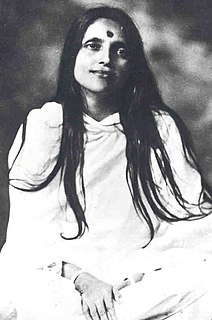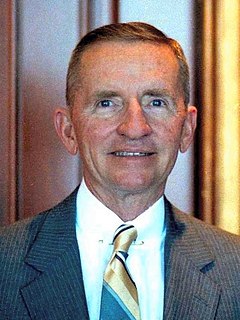A Quote by Carson McCullers
After the first establishment of identity there comes the imperative need to lose this new-found sense of separateness and to belong to something larger and more powerful than the weak, lonely self. The sense of moral isolation is intolerable to us.
Related Quotes
The idea that money brings power and independence is an illusion. What money usually brings is the need for more money - and there is a shabby and pathetic powerlessness that comes with that need. The inability to risk new lives, new work, new styles of thought and experience, is more often than not tied to the bourgeois fear of reducing one's material standard of living. That is, indeed, to be owned by possessions, to be governed by a sense of property rather than by a sense of self.
It is the incongruous thing in my entire life, this isolation.. ... My work requires it - but I myself have no need or use for it - Perhaps once on a time I found isolation imperative - I think all chrysalides do - all embryos go for the underside of the leaf in the time of body-change preparing for the final reassertion -resurrection - the establishment of the entity. But now I've come up tot the outside of my casements.
People who volunteer at the recycling center or soup kitchen through a church or neighborhood group can come to feel part of something 'larger.' Such a sense of belonging calls on a different part of a self than the market calls on. The market calls on our sense of self-interest. It focuses us on what we 'get.'
If God is Love, He is, by definition, something more than mere kindness. And it appears, from all the records, that though He has often rebuked us and condemned us, He has never regarded us with contempt. He has paid us the intolerable compliment of loving us, in the deepest, most tragic, most inexorable sense.
Commentators frequently blame MMORPGs for an increasing sense of isolation modern life. But virtual worlds are less a cause of that isolation than a response to it. Virtual worlds give back what has been scooped out of modern life. The virtual world is in important ways more authentically human than the real world. It gives us back community, a feeling of competence, and a sense of being an important person whom people depend on.
What we need is something, a definition of a human, starting from the ground up, so that the suitable moral structure that goes around it makes sense. The context has to come from the human first, rather than bits and pieces of fragments of old religion and all of the old moral superstructure, whatever it used to be.
The further limits of our being plunge, it seems to me, into an altogether other dimension of existence from the sensible and merely understandable world. Name it the mystical region, or the supernatural region, whichever you choose. So far as our ideal impulses originate in this region (and most of them do originate in it, for we find them possessing us in a way for which we cannot articulately account), we belong to it in a more intimate sense than that in which we belong to the visible world, for we belong in the most intimate sense wherever our ideals belong.
Then, you also have that, we all have that sense of wanting to belong. We all have that road-rage, you can relate to that road-rage because you're so frustrated. The sense of frustration, the sense of getting caught, doing something wrong, all those are sort of universal emotions and you just have to make it specific to yourself and you channel this, I don't know what it is, but this inner self and then try to capture the vulnerability.
The individual in the ordinary circumstances of living may feel more unreal than real; in a literal sense, more dead than alive; precariously differentiated from the rest of the world, so that his identity and autonomy are always in question.... He may not possess an over-riding sense of personal consistency or cohesiveness. He may feel more insubstantial than substantial, and unable to assume that the stuff he is made of is genuine, good, valuable. And he may feel his self as partially divorced from his body.







































